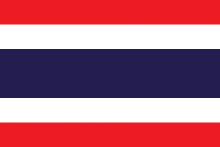Resource information
This paper attempts to summarize available knowledge, and identify the gaps in that knowledge, on marine fisheries and fishery resources in the Bay of Bengal region. It provides information on Bangladesh, Burma, India, Indonesia, Maldives, Malaysia, Sri Lanka and Thailand—their marine fisheries, fishery resources, status of important stocks, etc. The Consultation on Stock Assessment for Small-Scale Fisheries in the Bay of Bengal, Chittagong, Bangladesh, June 1980, was the first major attem pt to collect the knowledgeavailable on marine fishery resources in the Bay of Bengal (see BOBP/REP/10.1, BOBP/REP/10.2 and BOBP/WP/7). That attempt did not cover Maldives and Indonesia. This paper updates the three earlier papers, besides providing information on Maldives and Indonesia. The data covered is largely for the period 1974-82. It is hoped that this document will serve as a handy reference to those interested in the subject and also provide pointers to activities that are required in the area of marine fishery resource management. The preparation of this paper is an activity of the ‘Marine Fishery Resources Management’ component of the Bay of Bengal Programme (BOBP). The project commenced in January 1983 and has a duration of four years. It is funded by the UNDP (United Nations Development Programme) and executed by the FAD (Food and Agriculture Organization of the United Nations) its immediate objective is to improve the practice of fishery resources assessment amon g participating countries and to stimulate and assist in joint management activities between countries sharing fish stocks.



